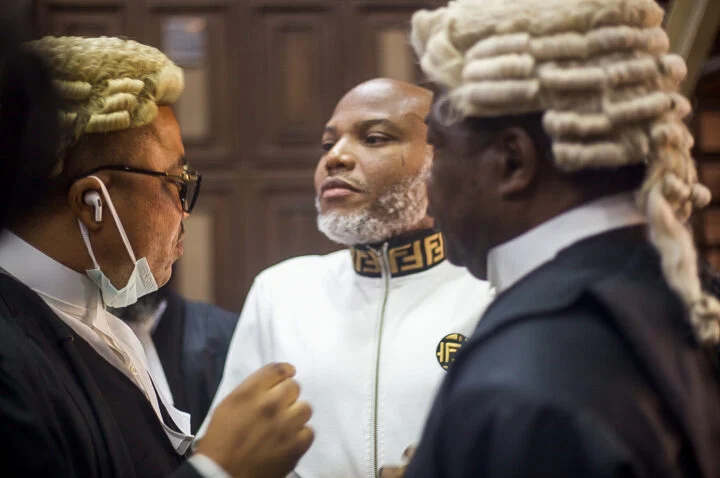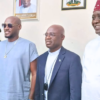The Federal High Court in Abuja has admitted three video recordings as evidence in the ongoing terrorism trial of Nnamdi Kanu, leader of the proscribed Indigenous People of Biafra (IPOB). One of the videos shows Kanu inspecting a radio transmitter allegedly smuggled into Nigeria and installed in Ubuluisiuzor, Ihiala Local Government Area, Anambra State.
The videos, presented by the prosecution, are part of a trial-within-trial ordered by Justice James Omotosho to determine the admissibility of statements Kanu claims were obtained under duress by the Department of State Services (DSS) in 2015.
Kanu alleges he was coerced into making statements on October 23, 24, and November 4, 2015, and referenced threats of solitary confinement by a DSS operative named “Mr Brown.” However, the third prosecution witness, identified as Mr CCC, dismissed the claim, stating that no such operative was involved and naming the actual interviewers as James, Ibrahim, and Collins.
Mr CCC also testified that Kanu was treated with respect and denied that any force or coercion was used. He said the defendant made several controversial remarks, including derogatory statements about former Presidents Goodluck Jonathan and Muhammadu Buhari, and claims that Senator Rochas Okorocha had “Islamised” his people. These remarks were allegedly made during an interview with US-based Sahara Reporters.
The prosecution also tendered Kanu’s written statements and accompanying video recordings from October 21 and 23, 2015, which they argue show the IPOB leader voluntarily admitting to being the founder and director of Radio Biafra. In one clip, Kanu claims the group has global financial support and representatives in over 80 countries.
During the trial-within-trial, Kanu took the witness stand, alleging he was slapped by a DSS operative upon his 2015 arrest in Lagos. He said the officer later apologized while escorting him to Abuja.
Justice Omotosho emphasized that the court must determine whether the statements were made voluntarily, in accordance with the Evidence Act. He also said the court would consider how the absence of the defendant’s lawyers during the initial interviews might affect the case.
The matter was adjourned until Thursday, May 29, for continuation of hearing and the court’s ruling on the admissibility of the contested statements.


